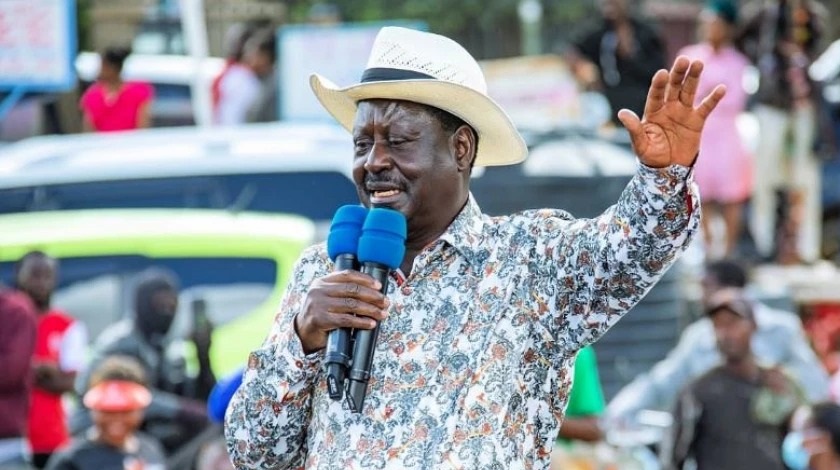The AU has ended the former prime minister Raila Odinga's appointment as a special envoy.
On October 20, 2018, Odinga served as the AU's High Representative for Infrastructure Development in Africa.
.jpg)
In a letter dated February 19, Moussa Faki Mahamat, the chair of the African Union Commission, thanked Odinga for his service and expressed his best wishes for the future.
He declared that the position would change to the African Union Development Agency-New Partnership for Africa's Development (AUDA-NEPAD).
Did you read this?
The leveraging of infrastructure as a key goal within the Continental agenda has been made possible by your extraordinary leadership and precise command of the challenges involved. According to Mahamat, with full authority to carry out the Continental plan on infrastructure, the NEPAD agency has been transformed into the African Union Development Agency - NEPAD.
Excellency, your contribution to this trip has been invaluable. Please accept my sincere thanks for agreeing to take on this responsibility during the changeover phase, which has now joyfully ended.
The head of the African Union remarked that Odinga would continue to be an asset to the organization.
"The African Union wants to continue counting on your support for other possible. I hope your future endeavors go well for you. The letter continued, "Please accept, Excellency, the expression of my utmost consideration and personal esteem.
Abraham Korir Sing'Oei, the ministry's principal secretary for foreign affairs, verified the information in a tweet on Thursday and thanked Odinga for his service.
"notice of the end of the term. We are grateful for the Rt. Hon. @RailaOdinga's contributions to the continental body, "Dr Sing'Oei stated.
The African Union's initiative to speed up the continent's integration through infrastructure to promote economic growth and sustainable development included Odinga's nomination in 2018.
As part of the position, Odinga was tasked with fostering more ownership by all interested parties on the continent while enlisting additional political backing from the Regional Economic Communities and AU member nations (RECs).
The continental high-speed train, one of the centrepiece initiatives of Agenda 2063's first ten-year implementation plan, was also emphasized.
To facilitate the development and modernization of the transnational highway corridors defined as a component of the Trans-African Highways Network, he, in particular, was entrusted with giving special attention to the missing links along those lines.
Appointment Following The Handshake
His handshake, or truce, with then-President Uhuru Kenyatta on March 9, 2018, unnerved William Ruto, who was pushed to the periphery of authority and became an outsider in the administration.
Odinga was later declared by Kenyatta to be his candidate for the 2022 presidential election, but Ruto won.

Ruto's presidency has now been terminated by Odinga, despite an unsuccessful petition being dismissed by the Supreme Court's seven judges unanimously.
Days after his AU mission ended, on Wednesday, he handed Ruto a 14-day deadline to reply to a long list of requests or face widespread unrest.
In response to Odinga's ultimatum, Ruto vowed to end impunity and declared that the rule of law would win.
Selection Panel For IEBC
The suspension of recruiting a selection panel to choose new electoral commission members is one of Odinga's main requests. Ruto has already started the procedure.
After the announcement of seven openings at the Independent Electoral and Boundary Commission, the panel was hired.
Three commissioners' terms—Wafula Chebukati (Chairperson), Boya Molu, and Yakub Guliye—ended, leaving the positions vacant.
Once Ruto established a tribunal to investigate their behaviour, three more people—Justus Nyang'aya, Francis Wanderi, and Vice Chairperson Juliana Cherera—resigned.
Cherera, Wanderi, and Nyang'aya belonged to a dissident group that rejected the results of the presidential election and included Irene Masit.
Witnesses who testified before the tribunal presided over by Judge Aggrey Muchelule claimed that the Cherera group sought to tamper with the election results to reverse Ruto's victory.
Masit, the sole commissioner to appear before the tribunal, refuted the charges during the month-long session, which ended on Monday.









